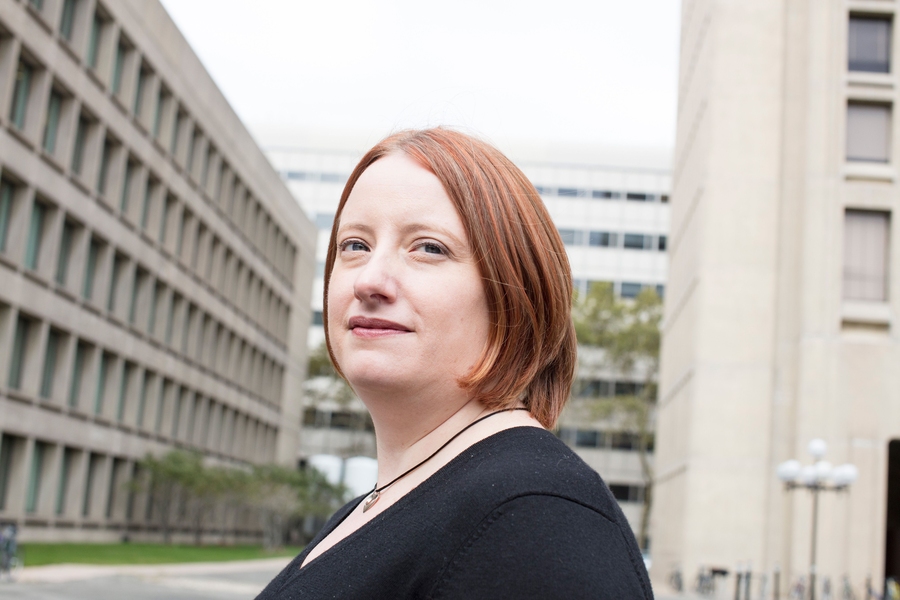
New center taps Institute-wide expertise to improve understanding of, and responses to, sustainability challenges.
School of Science Publication Date : August 5, 2024
“As critical challenges such as climate, health, energy, and food security increasingly affect people’s lives around the world, decision-makers need a better understanding of the earth in its full complexity — and that includes people, technologies, and institutions as well as environmental processes,” says Professor Noelle Selin.
Photo: M. Scott BrauerPrevious image Next image
The MIT School of Science is launching a center to advance knowledge and computational capabilities in the field of sustainability science, and support decision-makers in government, industry, and civil society to achieve sustainable development goals. Aligned with the Climate Project at MIT, researchers at the MIT Center for Sustainability Science and Strategy will develop and apply expertise from across the Institute to improve understanding of sustainability challenges, and thereby provide actionable knowledge and insight to inform strategies for improving human well-being for current and future generations.
Noelle Selin, professor at MIT’s Institute for Data, Systems and Society and the Department of Earth, Atmospheric and Planetary Sciences, will serve as the center’s inaugural faculty director. C. Adam Schlosser and Sergey Paltsev, senior research scientists at MIT, will serve as deputy directors, with Anne Slinn as executive director.
Incorporating and succeeding both the Center for Global Change Science and Joint Program on the Science and Policy of Global Change while adding new capabilities, the center aims to produce leading-edge research to help guide societal transitions toward a more sustainable future. Drawing on the long history of MIT’s efforts to address global change and its integrated environmental and human dimensions, the center is well-positioned to lead burgeoning global efforts to advance the field of sustainability science, which seeks to understand nature-society systems in their full complexity. This understanding is designed to be relevant and actionable for decision-makers in government, industry, and civil society in their efforts to develop viable pathways to improve quality of life for multiple stakeholders.
“As critical challenges such as climate, health, energy, and food security increasingly affect people’s lives around the world, decision-makers need a better understanding of the earth in its full complexity — and that includes people, technologies, and institutions as well as environmental processes,” says Selin. “Better knowledge of these systems and how they interact can lead to more effective strategies that avoid unintended consequences and ensure an improved quality of life for all.”
Advancing knowledge, computational capability, and decision support
To produce more precise and comprehensive knowledge of sustainability challenges and guide decision-makers to formulate more effective strategies, the center has set the following goals:
“The center’s work will advance fundamental understanding in sustainability science, leverage leading-edge computing and data, and promote engagement and impact,” says Selin. “Our researchers will help lead scientists and strategists across the globe who share MIT’s commitment to mobilizing knowledge to inform action toward a more sustainable world.”
Building a better world at MIT
Building on existing MIT capabilities in sustainability science and strategy, the center aims to:
“The Center for Sustainability Science and Strategy will provide the necessary synergy for our MIT researchers to develop, deploy, and scale up serious solutions to climate change and other critical sustainability challenges,” says Nergis Mavalvala, the Curtis and Kathleen Marble Professor of Astrophysics and dean of the MIT School of Science. “With Professor Selin at its helm, the center will also ensure that these solutions are created in concert with the people who are directly affected now and in the future.”
The center builds on more than three decades of achievements by the Center for Global Change Science and the Joint Program on the Science and Policy of Global Change, both of which were directed or co-directed by professor of atmospheric science Ronald Prinn.